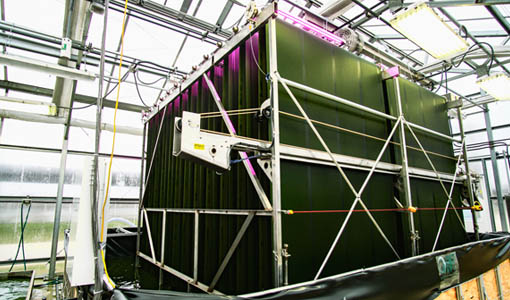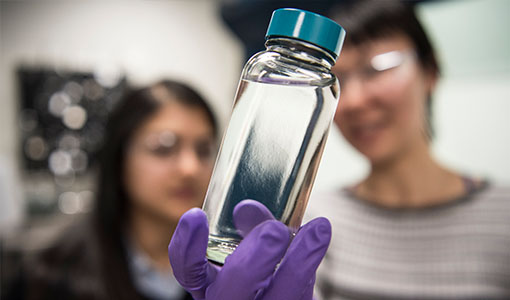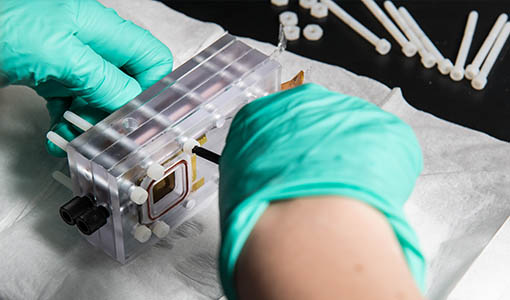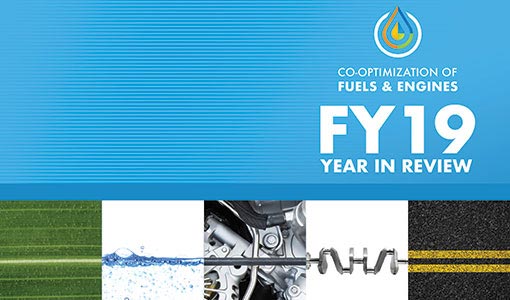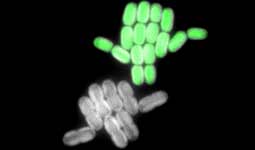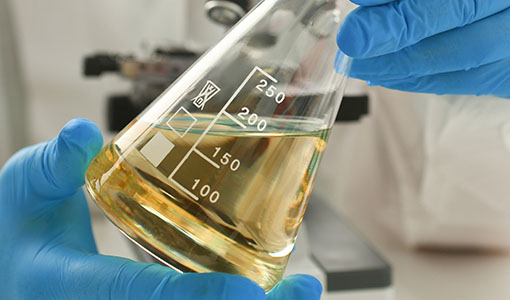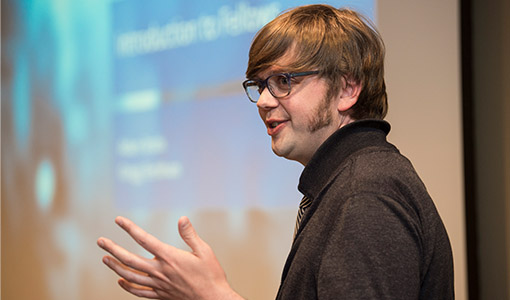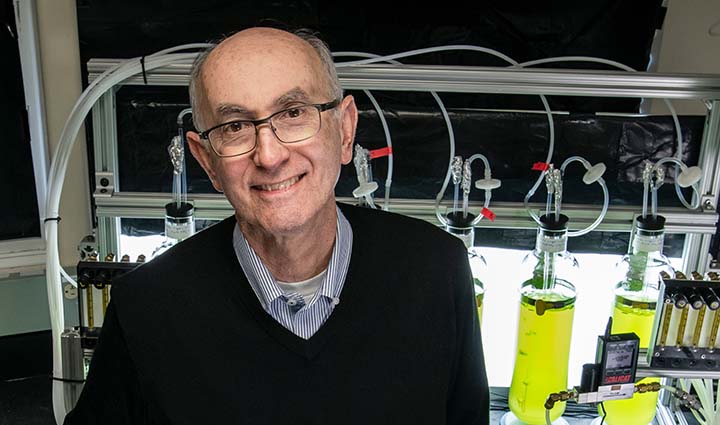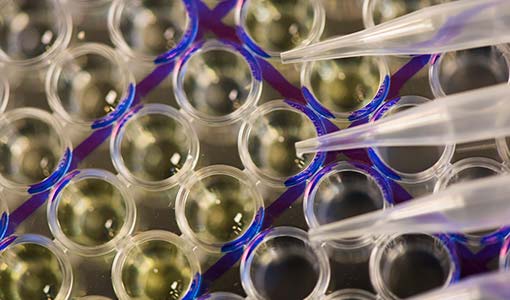Explore our collection of new stories for this topic.
Search or filter for a specific story using the options below.
July 2020
NREL Researchers Set Sights on Commercializing Biotechnologies with Industry Partners
Researchers at NREL are set to launch four bioenergy projects with industry partners that have the potential to accelerate the commercialization of novel bio-based products and technologies.
New Process Turns Carbon into Cleaner, High-Performance Diesel Biofuel Blendstock
A new single-phase catalyst that enables the conversion of renewable and waste carbon into sustainable diesel fuels has been developed through a unique collaboration between NREL and two DOE consortia, Chemical Catalysis for Bioenergy and the Co-Optimization of Fuels & Engines initiative.
June 2020
Lowering Atmospheric CO2 in Large-Scale Renewable Energy Electrochemical Process
What if carbon dioxide (CO2), a prevalent greenhouse gas, could be transformed into higher-value fuels and chemicals using low-cost, renewable electricity? Recent results from NREL may enable the scale-up of an electrochemical process to reduce CO2 that has not been possible until now.
Fuel and Engine Research Brings Cleaner, More Efficient Cars and Trucks Closer to Finish Line
Passenger cars and light-duty trucks typically account for 55% of U.S. transportation energy use. Recently, sharp increases in demand for deliveries have pressed some commercial trucks—which usually account for more than 25% of transportation-related fuel consumption—into overtime.
May 2020
Scientists Pinpoint Pathways for Carbon Dioxide Uptake of Cyanobacteria
Research performed by the Renewable and Sustainable Energy Institute (RASEI)—a joint effort between NREL and the University of Colorado, Boulder—shows how RASEI researchers traced the growth of individual cyanobacteria, providing new insights into the biological pathways that enable efficient photosynthetic growth, and ultimately high-value renewable fuels and chemicals.
NREL's John Farrell Honored for Leadership in Sustainable Fuels and Engines
Since taking the helm of NREL's vehicle technologies research in 2013, John Farrell has been instrumental in directing R&D initiatives for the U.S. DOE Office of Energy Efficiency and Renewable Energy's Vehicle Technologies Office, ranging from high-density energy storage to vehicle automation, as well as co-optimization of fuel and engine technologies to vehicle-to-grid interactions.
NREL Tool Quickly Provides Answers for Chemical Reactions
A new machine-learning tool developed at NREL has significantly speeded up calculating the thermodynamics of chemical reactions. Developed as part of the DOE Co-Optimization of Fuels & Engines initiative, the new tool—called ALFABET—makes it possible for researchers to identify the most promising fuels for lower emissions and greater engine efficiency in seconds rather than days.
April 2020
Lignin Research Yields Additional Answers into Bacteria's Role
A collaboration between NREL and three other national laboratories has yielded new insight into the ability of bacteria to break down the hardy part of a plant known as lignin. The additional understanding of the process could open a path to industrial applications.
Global 'Fashion for Good' Program Picks NREL's Pienkos to Participate
Phil Pienkos, who retired from NREL this month, already has his next project underway. He has been selected to participate in an international initiative called Fashion for Good that aims to bring sustainability into the fashion industry.
March 2020
Co-Optima Leads High-Speed Chase for Co-Optimization of Fuels and Turbocharged Spark-Ignition Engines
A new report summarizes findings from the first phase of the Co-Optimization of Fuels & Engines initiative, which focused on turbocharged spark-ignition engines for light-duty vehicles, identifying the fuel properties and engine parameters that mitigate knock and emissions, while maximizing efficiency and performance.
Share
Last Updated May 5, 2025

